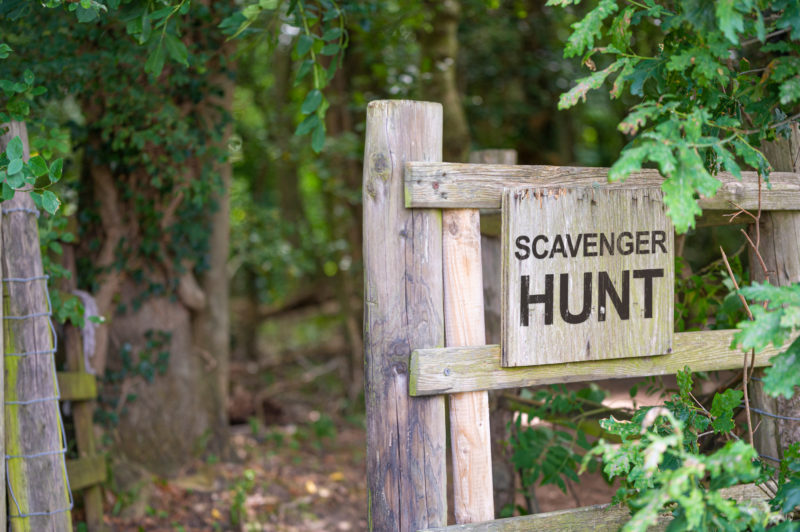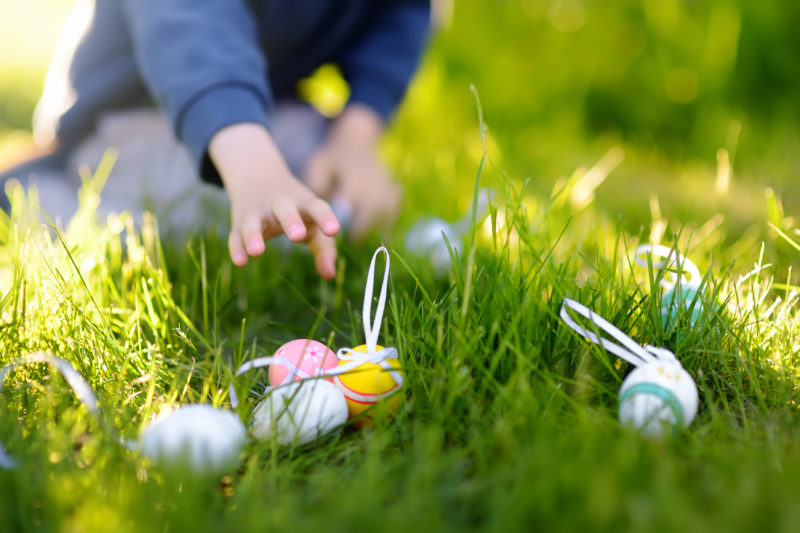Imagine a classroom. You probably picture a room with four walls, desks lined up in rows, and a blackboard at the front. That’s the usual scene, right? But we at Excelled Montessori think differently. We see the entire world as the best classroom a child could have. In this blog, we’re going to show you how learning in different places outside the typical classroom walls can really enrich and deepen a child’s education. How can play-based learning and nature-based learning enhance your preschooler’s experience? Let’s find out.

The World as a Classroom: Why Play-Based Learning and Nature Play Rock at Excelled Montessori
At Excelled Montessori, we see the whole world as our classroom. In our world, classrooms don’t have four walls, and learning knows no bounds. Here, we’re big on play-based learning and nature play. It’s not just fun; it’s about discovering the world first-hand and asking all the ‘whys’ and ‘hows’ that come to mind.
Let’s talk about nature play—it’s a whole different game from what you’d find on a typical playground. It’s all about exploring and asking questions. Kids dive into their surroundings, wondering, ‘Why does this leaf have so many veins?’ or ‘How do ants build their homes?’ They find answers not just by being told, but by exploring, sometimes on their own and sometimes with a little help from their friends or even us, the grown-ups.
And it’s not just playing outside that makes our classroom so special. Every place we go turns into a learning adventure. Imagine going on a nature walk, not just for exercise, but to really look at and learn about everything from bugs to big trees. Or think about visiting a local shop or a historical monument. It’s not just a fun trip; it’s a live lesson in everything from economics to history, making the big, complicated ideas really easy to grasp.
By learning in these real, vibrant places, our students don’t just learn facts—they get a feel for the world. They see how everything is connected, and they keep that curiosity burning to learn more about everything they touch and see. That’s the magic of learning with us at Excelled Montessori.
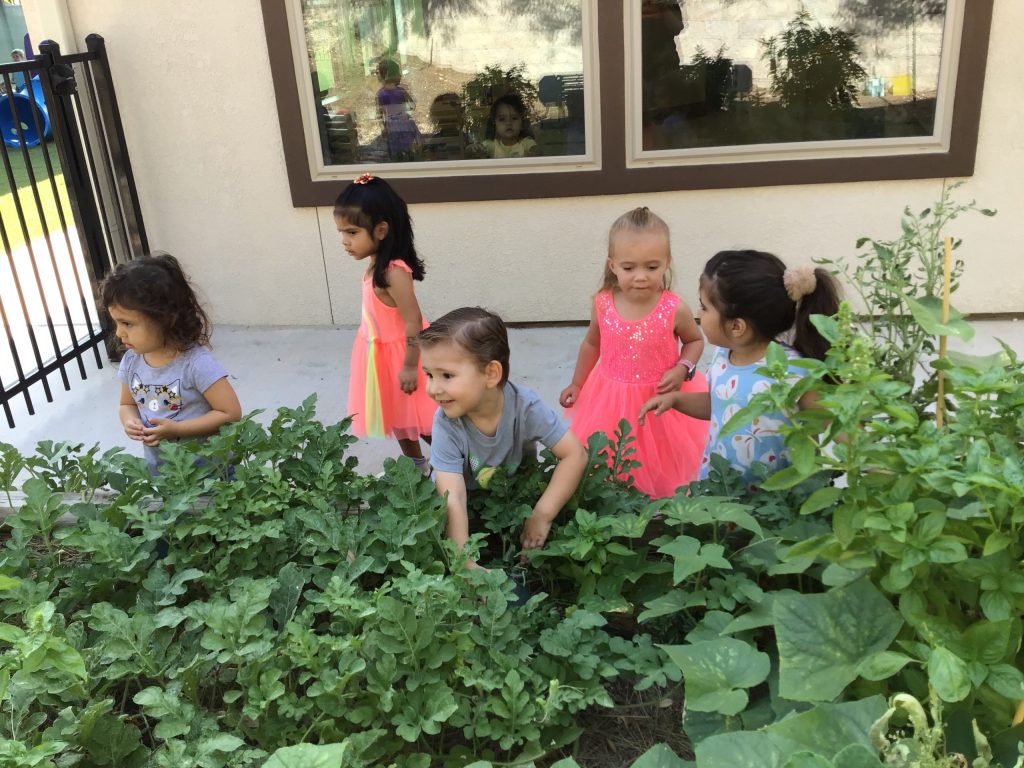
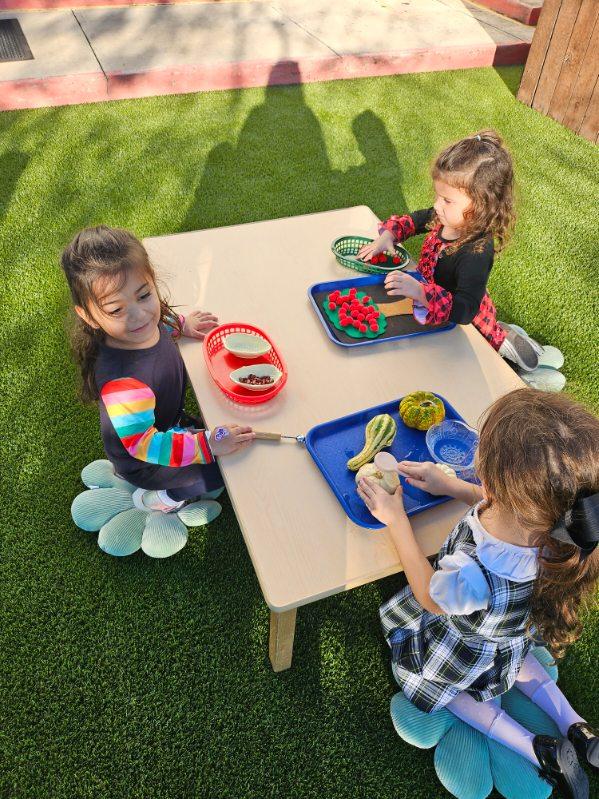
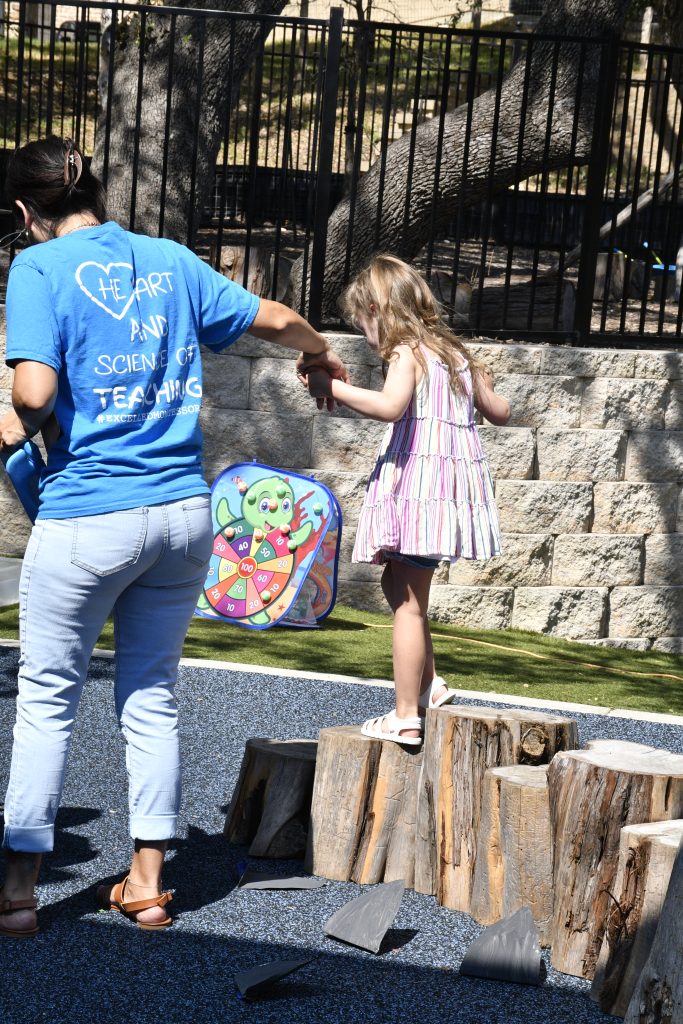
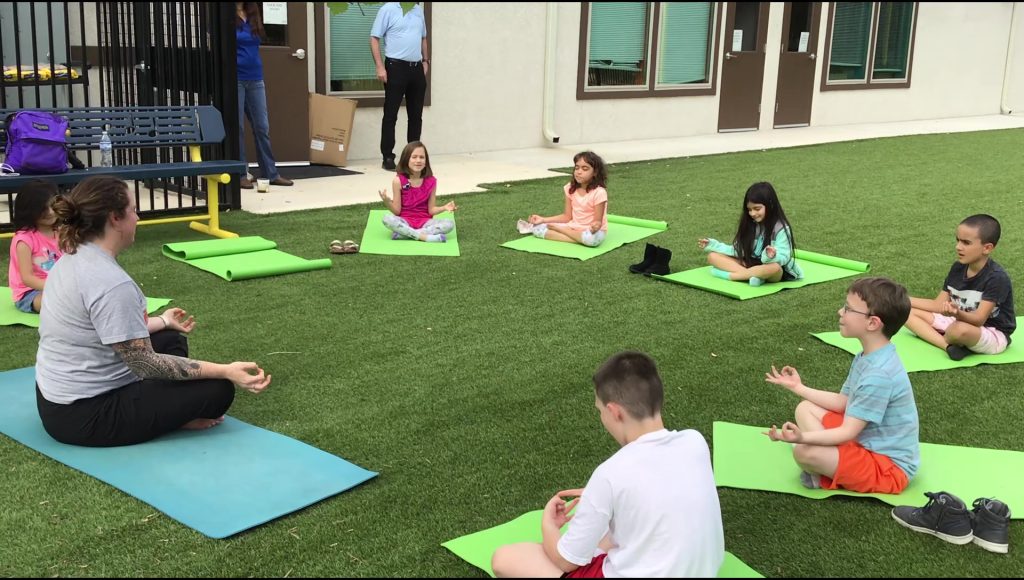
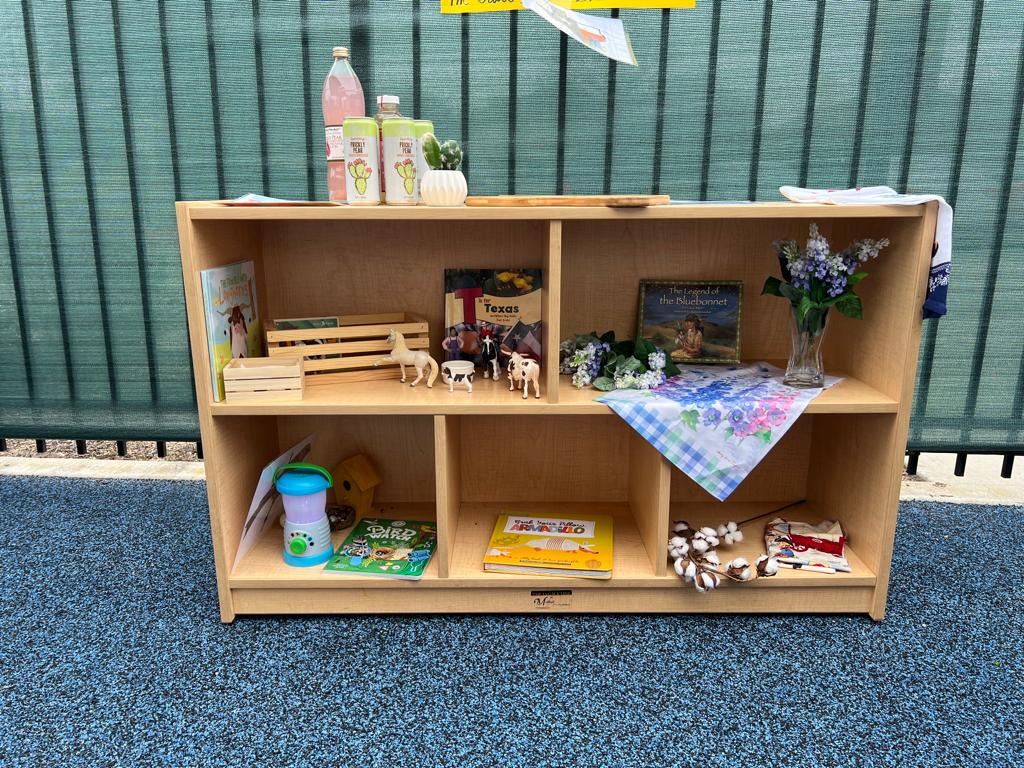
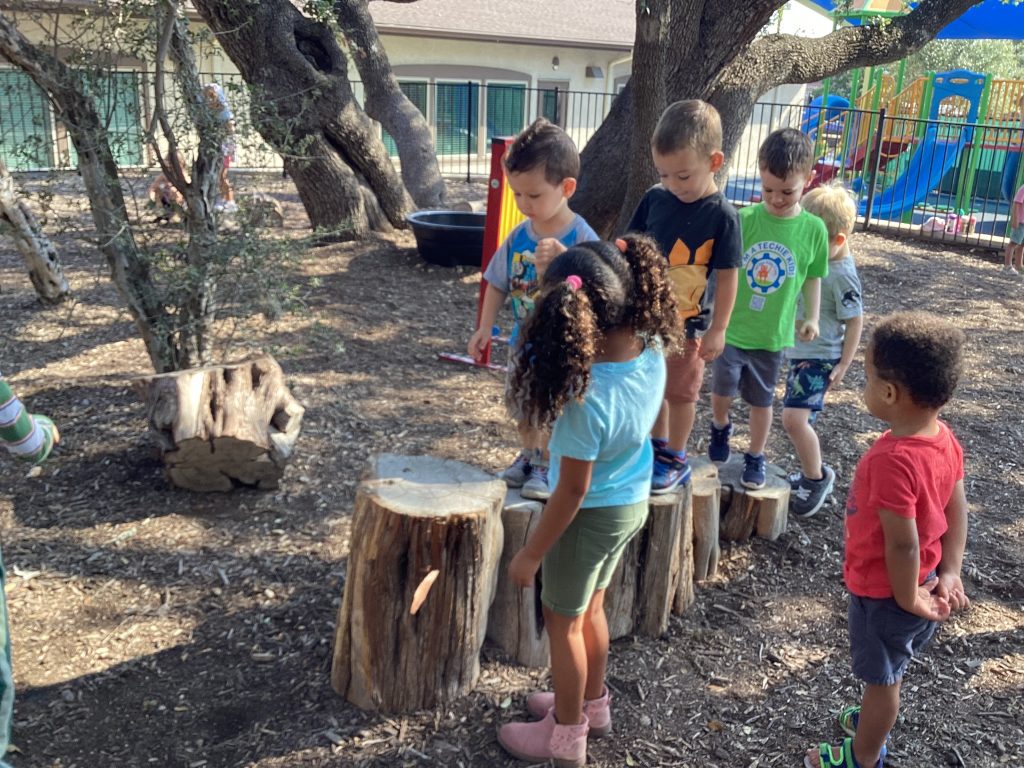
But here’s something important: how grown-ups feel about nature play really matters. If grown-ups are nervous about kids getting dirty or trying things out, kids feel that. They hold back and play it safe, just like on regular playgrounds. But if grown-ups are okay with getting a bit messy and are even a little bit involved, kids feel free. They dive into their play, their imaginations take off, and that’s when the magic of nature really comes alive.
Educational Philosophies Supporting Open Learning Spaces
Our approach is deeply rooted in educational philosophies such as Montessori and Reggio Emilia, which advocate for child-led learning and the environment as the third teacher. These methodologies encourage learning through exploration and interaction with the environment. By breaking out of the traditional classroom setting, children are empowered to take ownership of their educational journey, developing autonomy and critical thinking skills.
Benefits of Learning in Open Spaces
The advantages of learning outside the traditional classroom are manifold:
- Engagement: Students are naturally more engaged when learning about the world directly through their senses.
- Retention: Experiential learning leads to deeper retention of information, as it is connected with real-world applications.
- Problem-solving skills: Unstructured environments provide complex, unpredictable settings where children can develop adaptability and problem-solving capabilities.
Implementing Non-Traditional Learning Environments
Integrating open learning environments can seem daunting, but with thoughtful planning, it can be woven seamlessly into daily education. Here are some tips:
- Regular field trips: Plan regular outings that align with curricular goals, whether it’s a local garden or a tech startup.
- Outdoor classrooms: Whenever possible, hold classes outside to vary the routine and invigorate the learning environment.
- Community-based projects: Engage with local communities for projects that can offer mutual learning opportunities.
Challenges and Considerations
While the benefits are significant, educators and parents must also consider challenges such as safety, weather conditions, and logistical planning. Overcoming these hurdles requires creativity and flexibility in scheduling and curriculum design to ensure that every child has access to safe and productive learning experiences.
Conclusion
The environment in which we learn can significantly influence how we perceive, interact with, and understand our world. Excelled Montessori is committed to providing our students with expansive, engaging, and meaningful learning experiences beyond the traditional four walls. We invite our community to embrace these opportunities to see every corner of the world as a potential classroom.
Join Us
We invite our Excelled Montessori family to share their unique learning experiences from non-traditional environments. What have you discovered? Join the conversation in the comments below or on our social media platforms. Let’s explore every corner of the world as our classroom together.
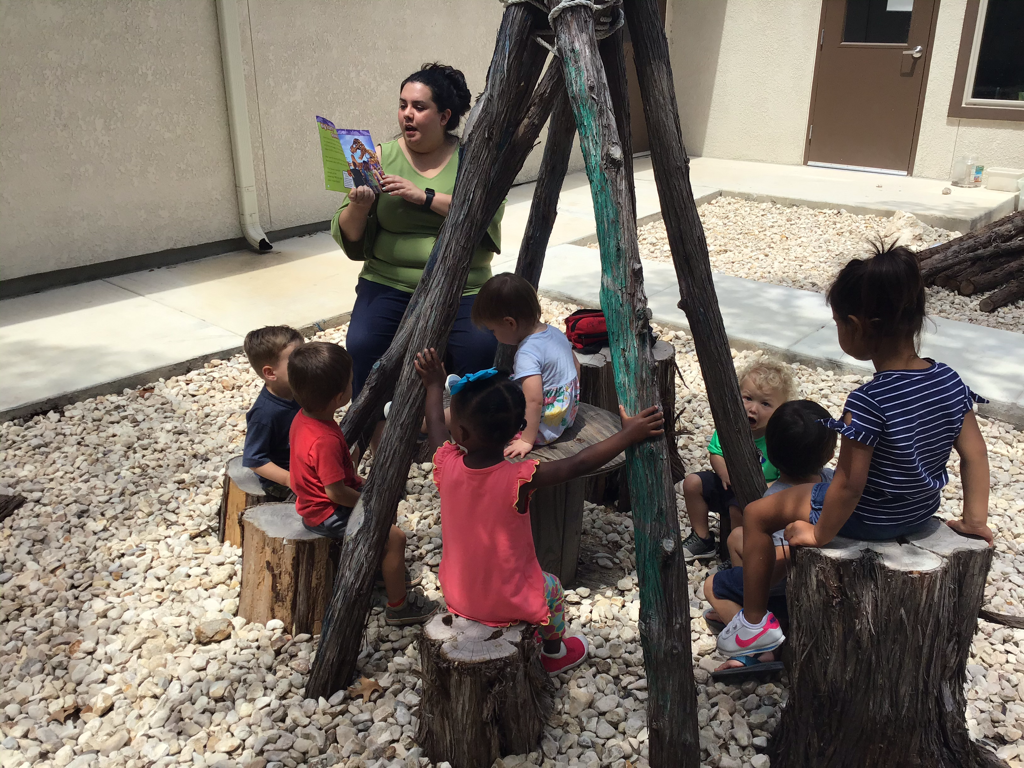
Related Articles
Why Risky Play is important for your child’s development
Movement and Motor Skills Mastery Lab
Programs offered at ExcellED Montessori Plus include:
✔️Infants (10 Weeks – 18 Months)
✔️Toddlers (18 – 36 Months)
✔️Primary (3-6 Years)
✔️Kindergarten
✔️Mother’s Day Out
✔️Spanish Immersion / Dual Language
✔️After School Programs and Summer Camp (6 – 12 Years)
Music, Spanish, and Yoga are other programs included as part of the tuition.
Learn more about Inquiry-based Learning



